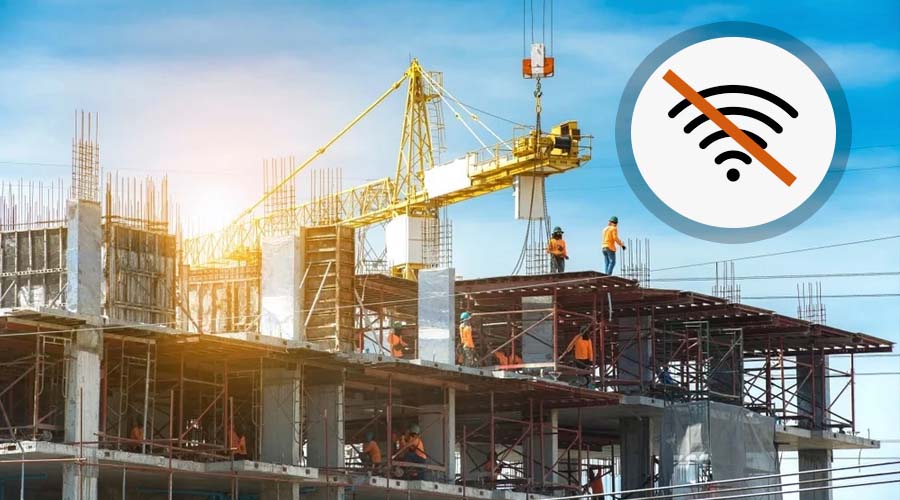Did your call ever dropped once you walk inside a building or room?
There are many reasons why one might get a poor cell service, and building materials are near the top of the list, right alongside distance from your nearest cell tower. But not every building material blocks service equally.
Your cell phone runs on cellular service such as Bell, Rogers, TELUS which represents the top major macro-networks. Moreover, cell towers in your area send out cellular signals that your phone picks up and allows you to connect to a macro-network.
Ever had to go outside or to a window to make a call? That happens because the building material is interfering with the strength of the cell signal in the area. Building Materials is one of the Primary Causes for Poor Cell Signal Indoors.
What building materials block cellular services?
In an increasingly connected world, reliable cellular reception is a necessity. To a certain degree, we can say that many factors affect cell service. Dense materials often obstruct or weaken cellular signals, leading to dropped calls, slow data speeds, and overall communication disruptions. These are the top 5 building materials that can affect significantly your signal.
Metal
Metal is one of the most damaging building material that bring your cell phone signal in a dead zone. Along with aluminum, lead, brass, copper, steel, iron, they destroy cellular frequency waves.
Low-E / Tinted Glass
Low-E is the biggest change we have seen in the last years that has an impact on cellular signal. Nowadays, building construction use low-emissivity glass to reduce energy costs but the impact on signal strength is extremely significant.
Concrete
Concrete buildings pose unique challenges to cellular reception due to its ability to block or reflect radio waves. Concrete presents obstacles to wireless signals, especially in buildings with thick walls or multiple floors.
Brick and Stone
Similar to concrete, the composition and density of these materials can obstruct radio frequencies, impeding the smooth transmission of cell signal.
Soundproofing
Certain types of soundproofing can interfere with cellular networks which rely on radio waves. If soundproofing is made of metal or concrete for example, you can notice weaker singals or dropped calls.
Other Materials
Many other type of materials or factors can effect your signal such as weather, distance form a cell phone tour, density of buildings, etc.


